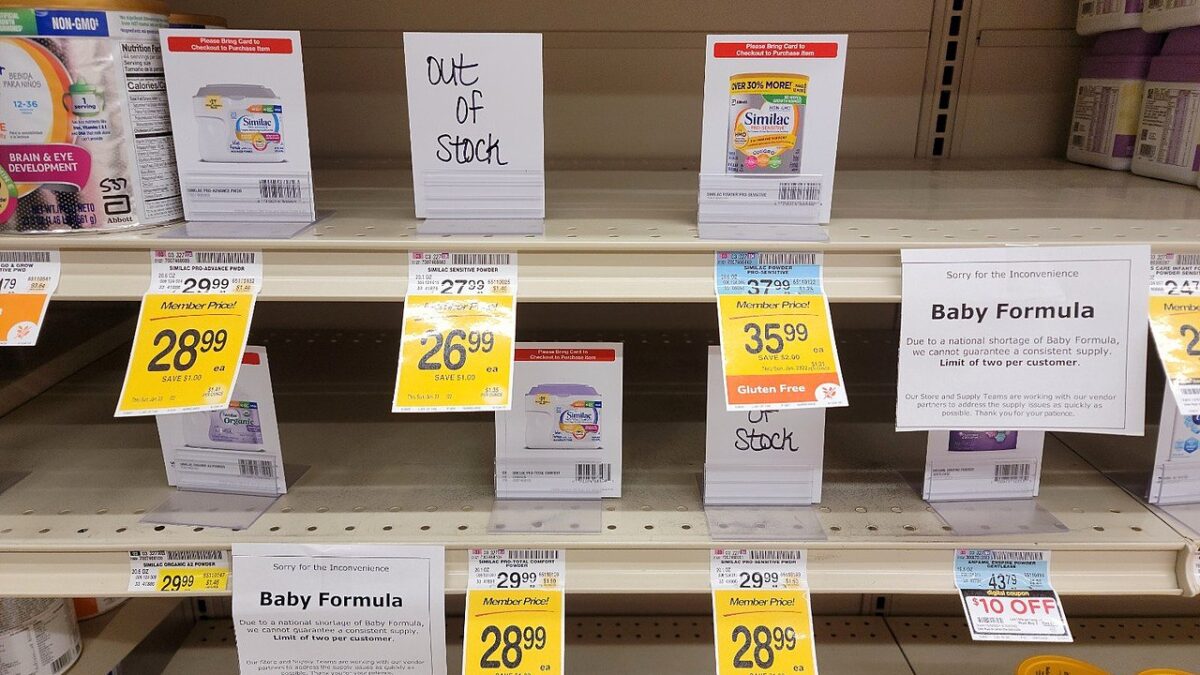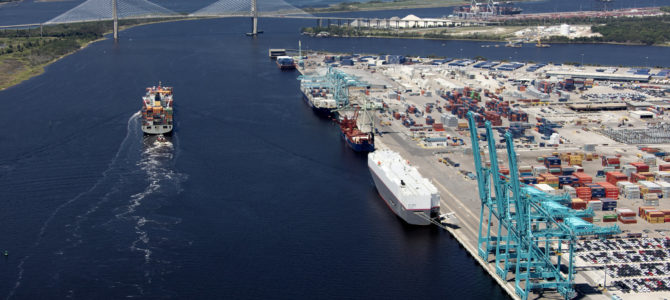
A popular refrain from tariff supporters is that protectionist measures are essential retaliation against the rest of the world, which employs tariffs with regularity. This argument does not really hold water. If every nation punishes its citizens, it does not follow that we should punish ours. Tariffs tax one industry in response to a foreign tax that affects another industry.
It is a game of robbing Peter because you claim Paul was robbed. This helps no one. Two wrongs do not make a right in pursuit of freer trade.
To examine this, let’s look at a simple hypothetical example. Imagine that France levies a tariff against the U.S. blue jean industry. The means French citizens pay a tax to the French government when they purchase American jeans. This is clearly a penalty to French consumers, who must pay an artificially increased price for their purchase.
The protectionist will immediately look to the effects on the American company. The marginal consumer in France will see the price increase and decide whether to purchase the jeans. If the price change from the French tax is large enough, the consumer will not buy the jeans. The American company misses out on this consumer because the French government chose to punish its citizens with taxes.
The American company is not guaranteed a market, however. No consumer owes her business to any company or industry, and in a market, the two sides must reach a mutually beneficial arrangement. It is clear that the foreign government hindered the quantity demanded of an American product. It is not clear that a governmental response is required.
Market Forces Can Overcome One Side’s Tariff
The jean company has a few options. It can invest in such uniqueness, variety, and quality that the French consumer will not mind paying the premium, or it can seek to reduce its costs to stay competitive in all markets. In both cases, the winners include the company that innovated, the domestic consumers who got more options, and the French consumers who have even greater quality to choose from.
Even though the market was not perfectly free, the market forces still produce good outcomes. The American company cannot rely on a single market; it must innovate and advertise to capture many markets. This is the case regardless of inefficient penalties hurled at certain buyers.
When tariffs are used to counteract tariffs, the government creates losers. Imagine that in response to the hypothetical French jean tariff, the United States levied a tax on imports of French soap. Not only does this harm Americans by making them pay more for this soap, but is a reaction that harms a different industry.
Now there is inefficiency in multiple places: the domestic jean exporters, domestic soap purchasers, and the French soap exporters. And the jean market is not improved at all. Tariffs are taxes that do not even apply to the problem at hand. The government may have sought to rectify the jean tariff, but instead only penalized another market.
Increasing the Imbalance Doesn’t Even Things Up
Justifying tariffs for one industry by pointing to an array of tariffs in other industries misses the benefits of free trade. This only raises the ante and creates more trade barriers. Leading the world in freedom requires sticking to free trade, even when other nations are not playing along. Free trade is fair trade, because it is the expression of free individual consumers buying what they choose based on price and quality. Interfering with that does not make anything fairer or freer.
There is merit to using tariffs as a negotiating tactic. Leveraging the threat of tariffs to get another country to alter its trade parameters can be effective. Yet actually employing those tariffs only distorts the market and injures domestic consumers. For a threat to be credible, the other side must think you will actually follow through, and that is a delicate balance. It is clear, however, that if tariffs are actually used, they will do a small amount of visible good and wreak unseen havoc on the domestic economy.
With steel and aluminum tariffs, there are clear gains forecast for the production industry. More difficult to see are the jobs in manufacturing, where steel and aluminum are inputs. By moderate estimates, there will be a net job loss in the economy from these tariffs, as manufacturers cut employees in the face of higher costs. To be clear, the costs will necessarily be higher.
It may only be a small increase in cost for certain manufacturers. That is dependent on the level of steel or aluminum in their products and the percentage imported. The concern is not with domestic producers price-gouging after achieving protection. It is much more simply due to the original price differential between imported and domestic inputs.
Manufacturers are likely purchasing whichever is cheaper (and of sufficient quality). This means any factory buying foreign steel is doing so because it costs less than buying domestic, and when the tariff goes into effect, the foreign steel will be more expensive. Whether they start to buy from domestic producers or continue buying foreign, they will pay more relative to their first arrangement. Domestic producers may not hike prices a cent and this will still be true. From this increase in the cost of inputs will come higher costs of manufacturing and higher product prices on the market.
Two Wrongs Don’t Make a Right
It is never necessary to distort the economy and pick winners and losers in the market. Claiming that the rest of the world is not playing by the rules is a mischaracterization of their behavior. Countries that tax their citizens for buying American products are harming their citizens. The effect on American businesses is unsavory.
Saying we need tariffs because we already don’t have free trade, though, moves us further from our goal. When foreign actors infringe on patents, make materially false statements to acquire business, or breach contracts, then they are breaking the rules in a way we can respond. These responses are justified and should be calibrated. Calling for greater market interference to deal with market interference, however, only does more damage.
Everyone wants to see foreign tariffs fall. Retaliatory tariffs could play a role, but that will come at a price: great inefficiency, damage to unrelated industries, and possible further retaliation from other nations. It is far better that the United States lead the world in free trade and chart a diplomatic and capitalistic path forward to achieve more liberalized market interaction.









